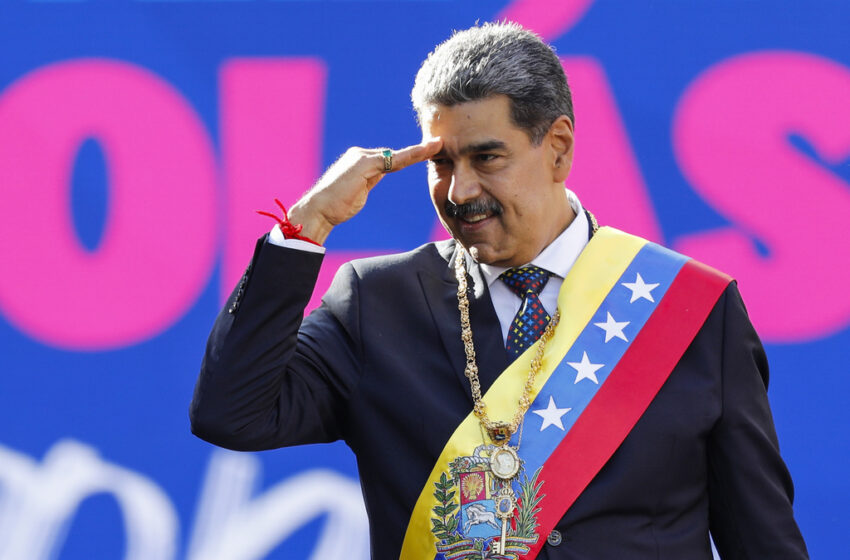Venezuela responds to U.S. warship deployment with Militia mobilization: What to know

Venezuelan President, Nicolás Maduro salutes supporters on his inauguration day for a third term at Miraflores presidential palace in Caracas, Venezuela, Jan. 10, 2025. (AP Photo/Cristian Hernandez)
In a dramatic and hostile escalation, Venezuelan President Nicolás Maduro announced the activation of over 4 million members of the Bolivarian Militia in response to a U.S. military deployment near Venezuela coast. The U.S., under President Trump, has dispatched three Aegis-guided missile destroyers, along with submarines and aircraft, near Venezuelan waters as part of anti-narcotics operations. Simultaneously, the U.S. doubled the bounty on Maduro to $50 million, citing his alleged ties to drug trafficking and the Cartel de los Soles.
Mobilizing the Militia: Path from Chavista Doctrine to Nationalist Rally
Maduro’s televised address marked a revival of the Bolivarian militia, originally created under Hugo Chávez in 2007 as part of a broader doctrine of civil-military unity. He pledged to deploy “militias prepared, activated, and armed”, expanding industrial and rural militias to guard the nation with rifles and missiles. This mobilization is not only reactive but symbolic of bolstered national sovereignty and the Chavista ideology of armed resistance.
Senior officials including Diosdado Cabello (Interior Minister) and Vladimir Padrino López (Defense Minister) rejected U.S. claims, dismissing Venezuela as a narco-state and accusing the DEA of acting as an international cartel themselves.
READ ALSO
Nicolás Maduro: Why the U.S. is offering a $50 Million bounty for the Venezuelan President
Trump–Zelenskyy meeting: What it means for the Russia–Ukraine war
Broader Implications: Sovereignty, Regional Stability, and Strategic Posturing
The unfolding standoff raises urgent questions:
- Sovereignty vs Intervention: For Maduro, activating the militia reinforces a message of defiance, “No empire will touch Venezuelan soil.” This mirrors rising nationalist rhetoric across Latin America.
- Regional Stability: The risk of miscalculations or unexpected clashes increases with both sides escalating military postures.
- Strategic Signaling: Trump’s deployment underscores the administration’s commitment to combat cartels, while Maduro counters with patriotic mobilization.
Militia expansion also serves internal purposes, fortifying regime control and showcasing resolve in the face of international pressure stemming from drug-trafficking accusations and a lucrative bounty targeting Maduro.
The confrontation between Venezuela and the U.S. has moved beyond rhetoric into concrete military preparation and hyper charged nationalism. While Washington deploys warships and raises the stakes with financial incentives, Caracas responds with a mass mobilization deeply rooted in Bolivarian military doctrine.
As tensions mount, the situation remains precarious, raising the urgency for diplomatic channels and regional engagement to prevent a broader confrontation with unpredictable consequences.

